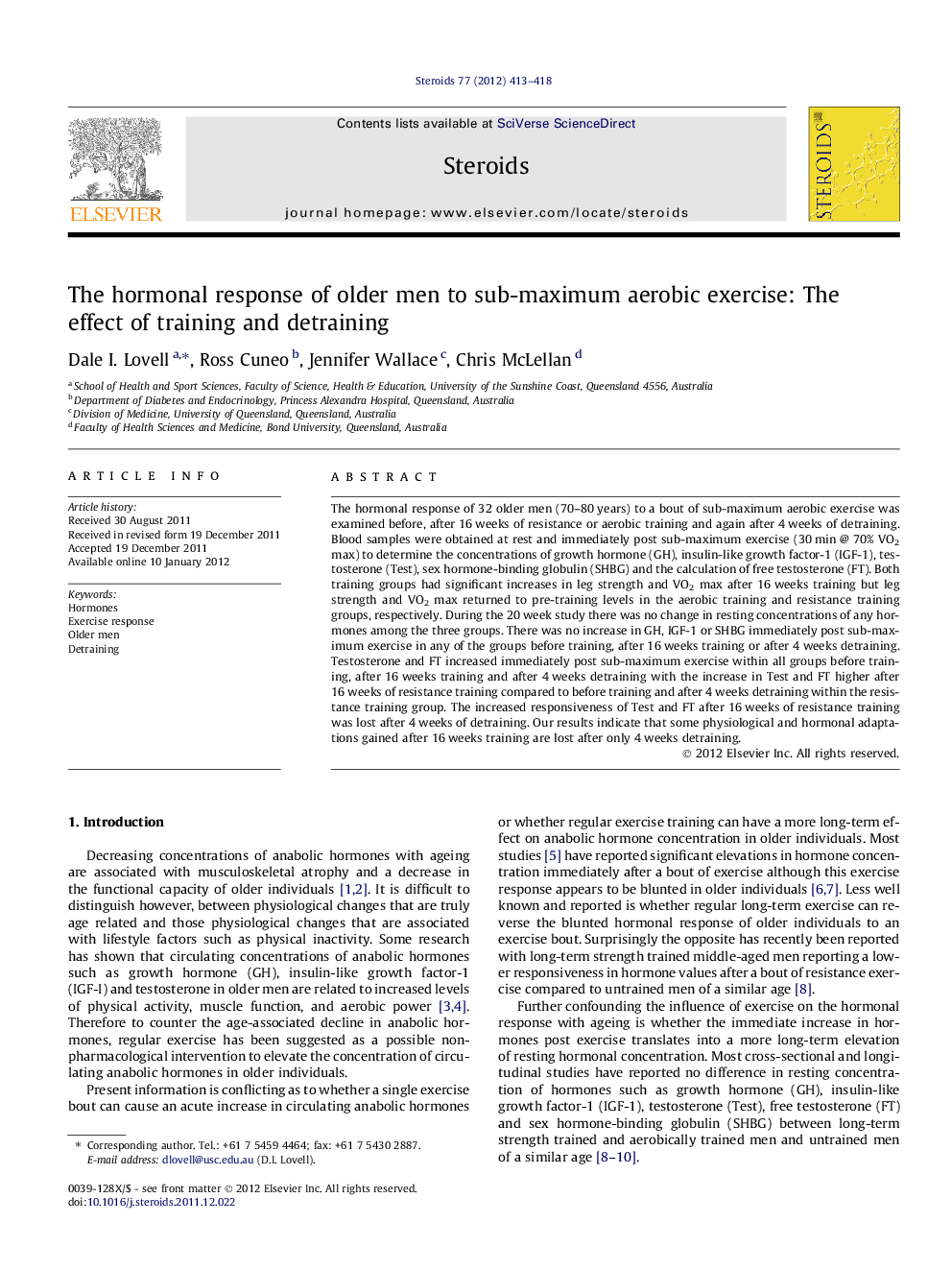| Article ID | Journal | Published Year | Pages | File Type |
|---|---|---|---|---|
| 2027988 | Steroids | 2012 | 6 Pages |
The hormonal response of 32 older men (70–80 years) to a bout of sub-maximum aerobic exercise was examined before, after 16 weeks of resistance or aerobic training and again after 4 weeks of detraining. Blood samples were obtained at rest and immediately post sub-maximum exercise (30 min @ 70% VO2 max) to determine the concentrations of growth hormone (GH), insulin-like growth factor-1 (IGF-1), testosterone (Test), sex hormone-binding globulin (SHBG) and the calculation of free testosterone (FT). Both training groups had significant increases in leg strength and VO2 max after 16 weeks training but leg strength and VO2 max returned to pre-training levels in the aerobic training and resistance training groups, respectively. During the 20 week study there was no change in resting concentrations of any hormones among the three groups. There was no increase in GH, IGF-1 or SHBG immediately post sub-maximum exercise in any of the groups before training, after 16 weeks training or after 4 weeks detraining. Testosterone and FT increased immediately post sub-maximum exercise within all groups before training, after 16 weeks training and after 4 weeks detraining with the increase in Test and FT higher after 16 weeks of resistance training compared to before training and after 4 weeks detraining within the resistance training group. The increased responsiveness of Test and FT after 16 weeks of resistance training was lost after 4 weeks of detraining. Our results indicate that some physiological and hormonal adaptations gained after 16 weeks training are lost after only 4 weeks detraining.
► The GH/IGF-1 response of older men to sub-maximum aerobic exercise is blunted regardless of training status. ► There is an increased responsiveness of Test and FT after 16 weeks of resistance training in older men. ► Physiological and hormonal adaptations gained after 16 weeks training in older men are lost after only 4 weeks detraining.
